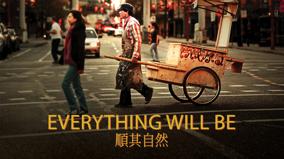New release
Coming
None
Minoru: Memory of Exile
1992
18 min
Leaving soon
The bombing of the American naval base at Pearl Harbor thrust 9-year-old Minoru Fukushima into a world of racism so malevolent he would be forced to leave Canada, the land of his birth. Like thousands of other Japanese Canadians, Minoru and his family were branded as an enemy of Canada, dispatched to internment camps in British Columbia and finally deported to Japan. Directed by Michael Fukushima, Minoru's son, the film combines classical animation with archival material. The memories of the father are interspersed with the voice of the son, weaving a tale of a birthright lost and recovered.

Details
The bombing of the American naval base at Pearl Harbor thrust 9-year-old Minoru Fukushima into a world of racism so malevolent he would be forced to leave Canada, the land of his birth. Like thousands of other Japanese Canadians, Minoru and his family were branded as an enemy of Canada, dispatched to internment camps in British Columbia and finally deported to Japan. Directed by Michael Fukushima, Minoru's son, the film combines classical animation with archival material. The memories of the father are interspersed with the voice of the son, weaving a tale of a birthright lost and recovered.
-
directorMichael Fukushima
-
animationMichael Fukushima
-
producerWilliam Pettigrew
-
executive producerBarrie McLeanDouglas MacDonald
-
animation cameraJacques AvoineRaymond DumasLynda Pelley
-
sound editingNormand Roger
-
re-recordingJean-Pierre Joutel
-
narratorMinoru Fukushima
Education
Ages 12 to 17
Study Guides
Mini-lessons
School subjects
This is a film about identity - both its fragility and its immutability. What does it mean to be a Canadian? Or Japanese? How can someone's identity be taken away? Minoru fought to be Canadian. Have students discuss what that might mean to them. Can students look to their own families to find stories of a struggle for identity? Why is it so important for us to choose our own fates and our own identities?

















